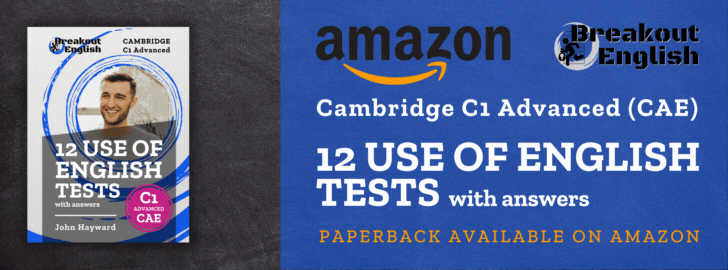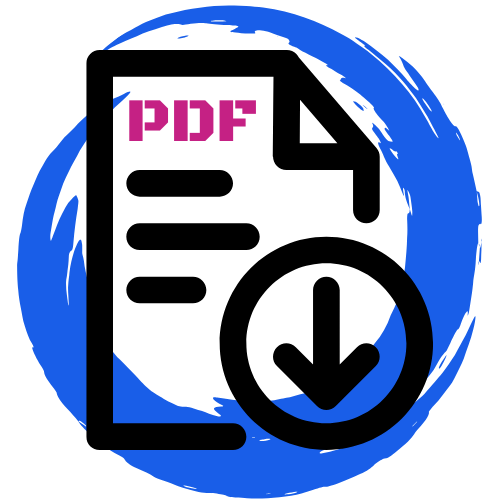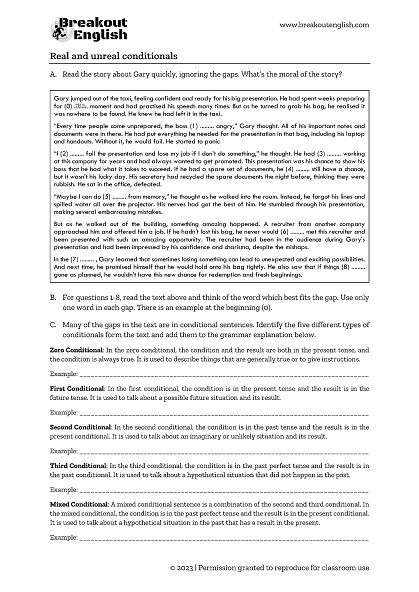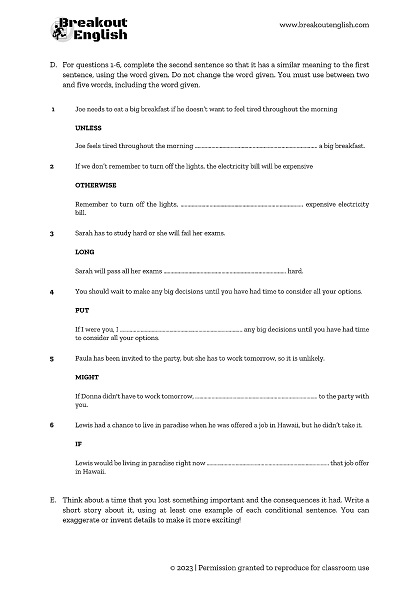Conditional sentences can be a challenging aspect of English grammar for language learners, and this is especially true when it comes to official English exams. In exams such as the Cambridge B2 First (FCE) or the TOEFL, learners are likely to encounter all five types of conditional sentences, which can require a deep understanding of the nuances of English grammar. These types include the zero conditional, the first conditional, the second conditional, the third conditional, and mixed conditionals. Each type of conditional sentence has its own unique structure and usage, meaning learners need to be able to identify and apply them correctly. Understanding these structures also requires a knowledge of the different tenses used in conditional sentences, such as the present simple, past simple, and past perfect. Ultimately, mastering conditional sentences is an important skill for English language learners, as it is essential for effective communication in both spoken and written English.

In this post, we will look at the grammar behind each conditional clause and finish with some downloadable materials that can help to introduce all five conditionals within one text. I’ve found many coursebooks and other materials separate conditionals and slowly work through them one by one, but when you are pressed for time and preparing for an exam, you don’t always have the luxury of time. These materials are appropriate for learners preparing for exams at B2 or C1 level, such as the Cambridge First (FCE) and Advanced (CAE), which are likely to include conditionals within their Use of English sections. In fact, the materials also include key word transformations to test how well you know the conditionals after introducing them. Check out our dedicated post for even more FCE key word transformations with conditionals.

Contents
Types of conditionals
Let’s take a closer look at the five different types of conditional sentences that you may encounter in official English exams. The zero and first conditionals are considered real conditionals, whereas the second, third and mixed conditionals are considered unreal conditionals. Examples of real and unreal conditionals will be found below. The topic of all the examples is work, just like our downloadable materials.
Zero conditional
The first type of conditional, the zero conditional, is used to describe things that are always true or generally true. The zero conditional is often used when discussing facts, habits, policies or procedures which never change.
“If a client requests a refund, we always follow the company’s refund policy.” – We always follow this procedure. It is a rule.
“If you need help, my door is always open.” – A typical corporate open-door policy.
First conditional
The first conditional is used to describe a possible future event and its likely result. This type of conditional is often used when making predictions or discussing potential outcomes.
“If we finish this project on time, we will receive a bonus.” – The outcome of a bonus is dependent on the previous action, but the possibility is real.
“If we don’t explore new markets, the company’s income is going to flatten out.” – Exploring new markets is a real possibility, so a first conditional is appropriate.
Second conditional
The second conditional is used to describe hypothetical or imaginary situations in the present or future. We use it when a situation is unreal or unlikely.
“If we invested more in marketing, we could attract more customers.” – The expectation here is that we won’t invest more in marketing, hence a second conditional being appropriate.
“If the budget allowed it, we would open a new branch.” – There isn’t money in the budget, making it an unreal situation.
“If I were you, I would try to meet the next deadline.” – I’m not you.
Third conditional
The third conditional is used to describe hypothetical situations in the past and their likely past results. Both the condition and its result are in the past. For this reason, it is often used to express regret. We can use it when discussing missed opportunities or reflecting on past decisions.
“If we had submitted the proposal earlier, we might have won the contract.” – We didn’t submit it on time, and we didn’t win the contract.
“If Mike hadn’t spent the budget on business trips, we would have done some employee training.” – These situations are irreversible, making them hypothetical. You can’t change the past.
Mixed conditional
Finally, the mixed conditional is used to describe a hypothetical past situation and its present or future result. It demonstrates the consequences of past decisions that continue to impact the present. These conditionals are fairly common because we love to consider how our past actions affect our present situation.
“If we had invested more in research last year, we would be in a better position to compete with our rivals now.” – We didn’t invest and now we regret that decision.
“If she hadn’t had the opportunity to move away, she would still be working in her parent’s restaurant.” – Her past choice has had an effect on her present situation.

Going beyond the basics
Aside from the word “if,” there are other words that can be used to express conditional statements in English. Using these words can add variety and nuance to your language, making your communication more effective and interesting. Let’s look at some of the most common words that can be used to substitute “if” in conditional sentences, categorised by their corresponding conditional type.
| Conjunction | Real Conditional (Zero and First) | Unreal Conditional (Second, Third, and Mixed) |
| after | ✔️ – I will call you after I finish work. | ❌ |
| as long as | ✔️ – As long as you study hard, you will pass the exam. | ❌ |
| as soon as | ✔️ – I will let you know as soon as I hear back from them. | ❌ |
| assuming | ✔️ – Assuming our competitors are already planning, we will have to work quickly. | ✔️ – Assuming I had a chance, I would enter the tournament. |
| before | ✔️ – I will finish this project before the deadline. | ❌ |
| even if | ✔️ – Even if it rains, we will still have the party. | ✔️ – Even if she had told me, I wouldn’t have believed her. |
| on condition that | ✔️ – I will lend you the money on condition that you pay me back by Friday. | ✔️ – I would only go on holiday with you on condition that we stay in a nice hotel. |
| in case | ✔️ – I will bring an umbrella in case it rains. | ❌ |
| provided (that) | ✔️ – I will attend the meeting provided that it doesn’t conflict with my schedule. | ✔️ – I would let my brother stay with me provided it was only for a couple of days. |
| supposing (that) | ✔️ – Supposing that you win the lottery, what would you do with the money? | ✔️ – Supposing your friends asked you to lend them money, would you do it? |
| unless | ✔️ – I will not be able to come unless you give me the address. | ✔️ – I wouldn’t have gone unless I was forced to. |
| until | ✔️ – I will wait for you until you finish your shift. | ❌ |
| whether (or not) | ✔️ – Whether or not you like it, we have to go to the dentist. | ✔️ – Spain is a great place to travel whether you go in summer or winter. |
| when | ✔️ – When I see her, I will tell her the news. | ❌ |
Note that some of these conjunctions can be used in both real and unreal conditionals, but their meanings may differ slightly depending on the context. Conjunctions that can only be used for real conditionals tend to indicate time in some form. For example “as soon as” indicates the moment somethign happens. Conjunctions that are possible for real and unreal conditionals It’s important to understand the nuances of each conjunction and how they can be used effectively in conditional sentences.
The materials
After years of teaching conditionals, I’ve found it’s an easy grammar point to get lost in the details. There’s often too much explanation and too little practice. Let’s face it, conditionals are going to be one of those areas that you will continue to struggle with even as you improve your level no matter how many times you study the “formula”, especially when you realise English speakers tend to bend the rules of conditionals all the time.
With these materials, the aim is to introduce all five types of conditionals in a short and concise text on the topic of work and losing something important to you. You can then analyse the conditional sentences in the text to focus on the grammar before practising conditionals in the context of a Cambridge B2 exam key word transformations task. Finally, get some practice with conditionals by thinking of a situation where you lost something important to you and the consequences it had.
Download




